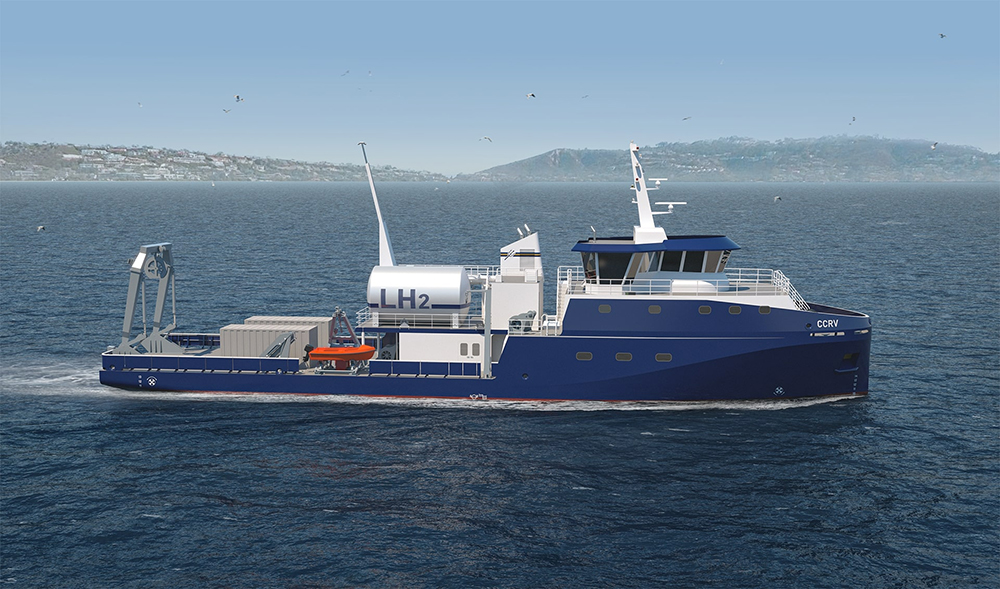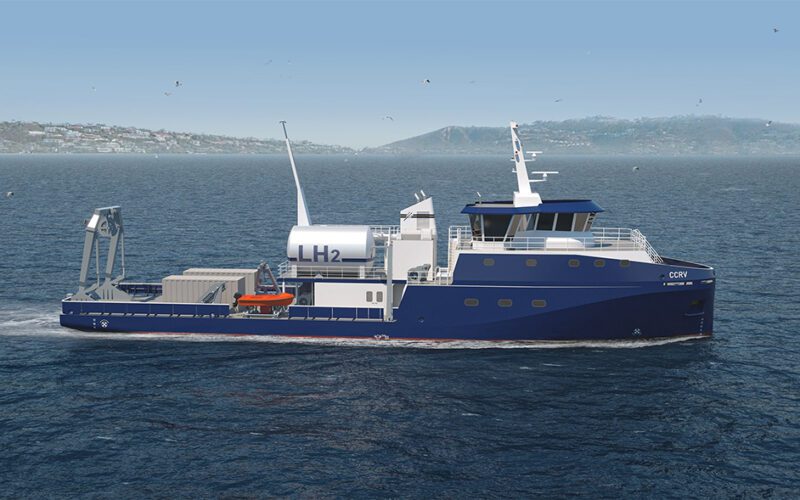
Seattle-based naval architecture and marine engineering firm Glosten and Siemens Energy announced Nov. 14 that they’ve chosen Ballard Power Systems and Chart Industries as the primary equipment vendors for their design of what could be the world’s first hydrogen-hybrid research vessel.
The vessel, known as the CCRV, is currently in the design phase and is set to be owned and operated by the University of California, San Diego’s Scripps Institution of Oceanography.
British Columbia-based Ballard Power Systems is providing the fuel cells which will help power the vessel, and Georgia-headquartered Chart Industries is providing the cryogenic tank and fuel gas system where the liquid hydrogen fuel will be bunkered and conditioned for the fuel cells—both essential components of a hydrogen-fuel-cell propulsion system.
The vendors’ equipment is expected to allow extended zero-emissions operation of the Scripps’ CCRV to help the university to meet its clean operations goals during science missions along the California coast.
“Ballard Power Systems and Chart Industries are known for their expertise in hydrogen technologies, so we felt like they were a natural choice for a hydrogen propulsion system this unique,” Tim Leach, the principal naval architect at Glosten who’s leading the CCRV design effort, said.
“Their experience,” he added, “will be invaluable to this project and integrate well with the engineering team as they move forward with developing the details of this design.”
According to Glosten, the company has for over 60 years supported Scripps with engineering and design work for their oceanographic research fleet, including the midlife refit of the r/v Roger Revelle, modifications to the r/vs Sally Ride, Melville and New Horizon, and the design of the recently retired FLoating Instrument Platform (FLIP).
In 2018, Glosten was contracted by Sandia National Laboratories to perform a feasibility study of a zero-emission, hydrogen-fuel-cell coastal research vessel. The Zero-V concept was developed in collaboration with Scripps and validated the coastal hydrogen-hybrid research concept.
Glosten was awarded the contract to develop a concept-through-production-level design package for the CCRV in 2022.

